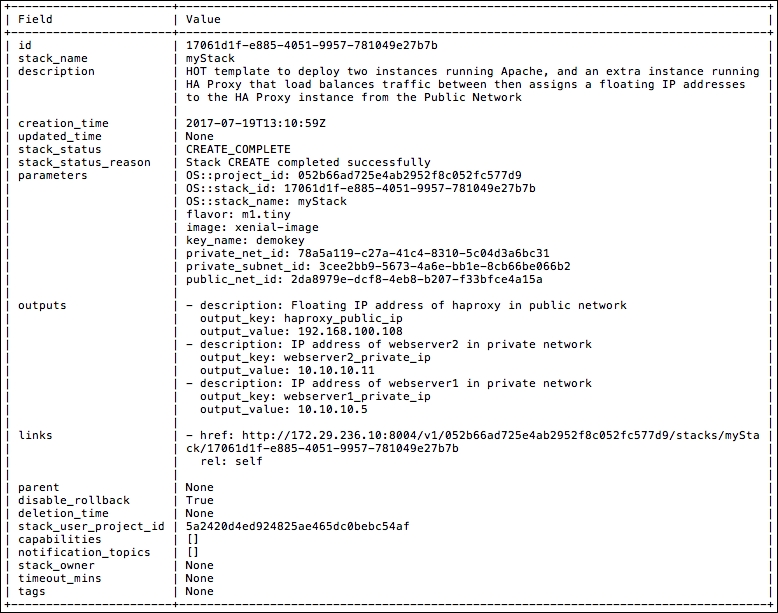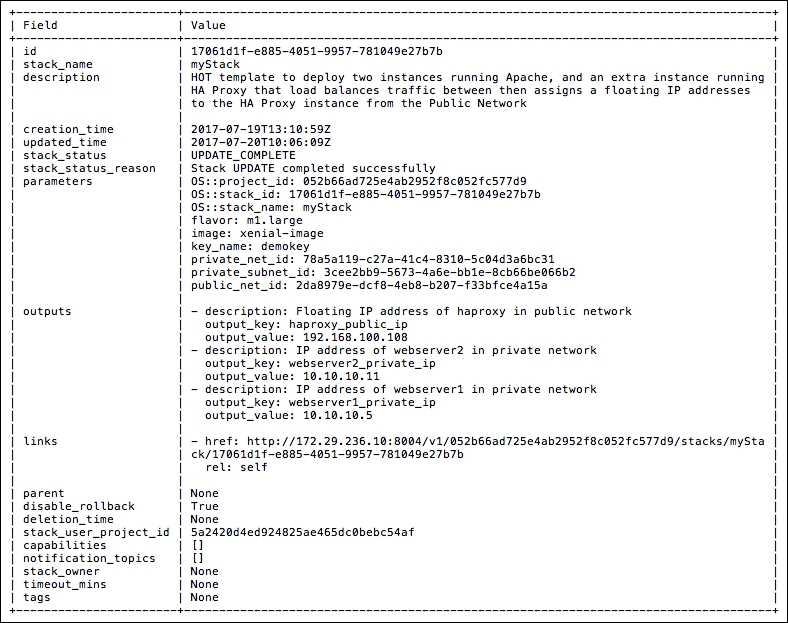Our running Stack is based on templates, so this allows us to modify our application stack by altering the inputs. If we wanted to change the size of a flavor, or the key used, you can trigger a rebuild of the instances in the stack by altering the inputs and issuing the stack update command.
Ensure that you are logged on to a correctly configured OpenStack client and can access the OpenStack environment. Refer to Chapter 2, The OpenStack Client, for details of setting up your environment to use OpenStack.
In this section, we'll modify the environment file to change a flavor from m1.tiny to m1.large. (Ensure that you have a valid flavor with this name before continuing!)
- We first edit the environment file, called
cookbook-env.yaml, to show the changes we want to make to our running stack:parameters: key_name: demokey image: xenial-image flavor: m1.large public_net_id: 2da8979e-dcf8-4eb8-b207-f33bfce4a15a private_net_id: 78a5a119-c27a-41c4-8310-5c04d3a6bc31 private_subnet_id: 3cee2bb9-5673-4a6e-bb1e-8cb66be066b2 - Ensure that the stack is running without issues by viewing the resources:
openstack stack show myStackThis will bring back an output like the following:

- We will now use the updated environment file to modify the running stack:
openstack stack update myStack --existingThis will bring back an output like the following, showing the update has started:

- Also we can view the state of the stack once this has been completed, to show the reflected change:
openstack stack show myStackThis will bring back an output like the following (note that the flavor has changed from
m1.tinytom1.large). Also note that the IP addresses have not changed:
The OpenStack Orchestration service, Heat, is designed to follow a template to provide a running service to end users. Everything is automated from start to finish. This crucial feature allows us to update a running stack, effectively redeploying the stack with updates, which runs through the fully automated routine to restore the service, on the same IP addresses, but with the required changes.
The syntax for updating the stack is as follows:
openstack stack update nameOfStack --environment updatedEnvironmentFile.yaml --template originalStackTemplate.yml
In our example, we omitted the --environment and --template parameters as we made the required change to our stack directly in the environment file used originally. This allowed for a simpler syntax:
openstack stack update nameOfStack --existing
